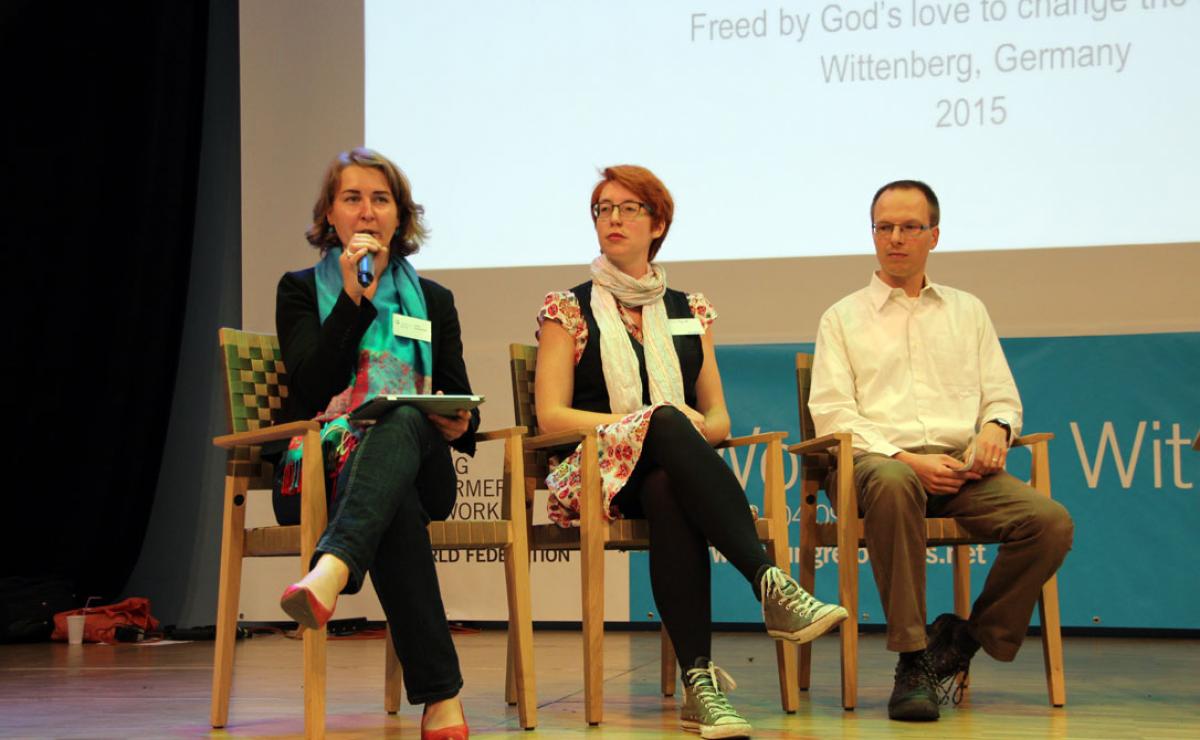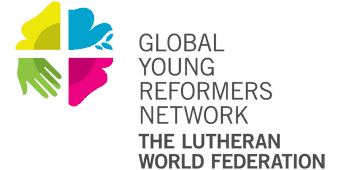“We cannot afford to be divided as Christians”

Seek the good of the other despite our differences
WITTENBERG, Germany/GENEVA, 31 August 2015 (LWI) - Young reformers at the global gathering in Wittenberg, Germany, have heard from speakers from different Christian traditions on ways in which other Christian communities express the ongoing search for the unity of the one Church of Jesus Christ.
“To be Lutheran means to be ecumenical” was the theme of a panel presentation at the LWF workshop of the Global Young Reformers’ Network. The LWF is approaching its Reformation anniversary in 2017 in the spirit of ecumenism.
The panelists were Erin Clark from the Church of England, Brother Jasper from the Community of Taizé, in France, and Judith Königsdorfer, representing the World Council of Churches Executive Committee. They offered insights on the Reformation anniversary and how ecumenism is expressed in their respective communions.
They agreed ecumenism was a positive challenge.
Jasper emphasized Christ’s call to Christians to pray together. “We all have prayer in common; this is something we can continue to do together.” He noted that brothers from different Christian traditions and cultures live together in Taizé, “not because it is very easy to live together but because we believe God has called us here.”
On ways in which the forthcoming Reformation anniversary can be marked in an ecumenical way, he encouraged workshop participants to read the joint Lutheran Catholic publication From Conflict to Communion. In it, Lutherans and Catholics describe for the first time together the history of the 16th century Reformation, including the wrongful and hurtful portrayal of each other and ongoing efforts towards church unity. The publication includes five ecumenical imperatives.
Königsdorfer noted that, “we still cannot afford to be divided as Christians. We have to step out and have dialogue also with people of other faiths.” She described the solidarity of prayer as one of the most powerful affirmations of faith. “When someone whose country was experiencing difficulties comes to me and says, “Thank you for praying for us, for my country,” that’s very powerful,” she said.
Clark emphasized the way in which Christian unity should also express itself in the way churches respond to current challenges in society.
“The way churches respond to people fleeing their homes because of religious and other violence will show what the churches really are. How we speak or not to our governments prophetically on asylum seekers is a big challenge,”Clark said.
Reflecting on mutual relations between Christians and people of other faiths, she explained that tolerance alone goes only as far as “listening without acting.” However, meaningful dialogue needs to move beyond tolerance and actively seek the good of the other “even when we may not agree with each other.” She emphasized that Christian traditions including Anglican, Catholic and Lutheran “equip us to be both tolerant and to serve.”
Follow events live at Workshop Wittenberg
